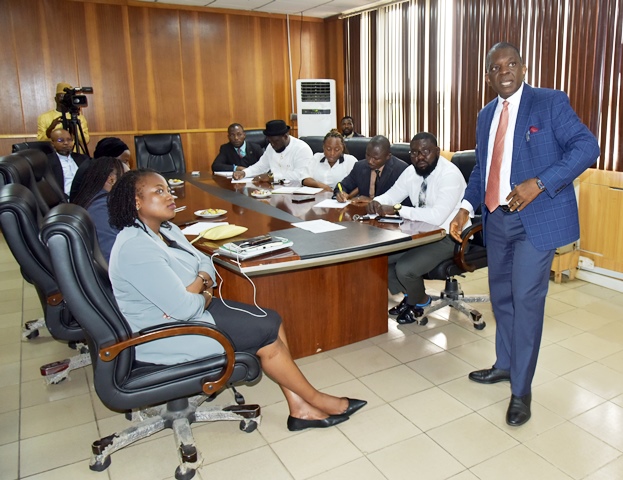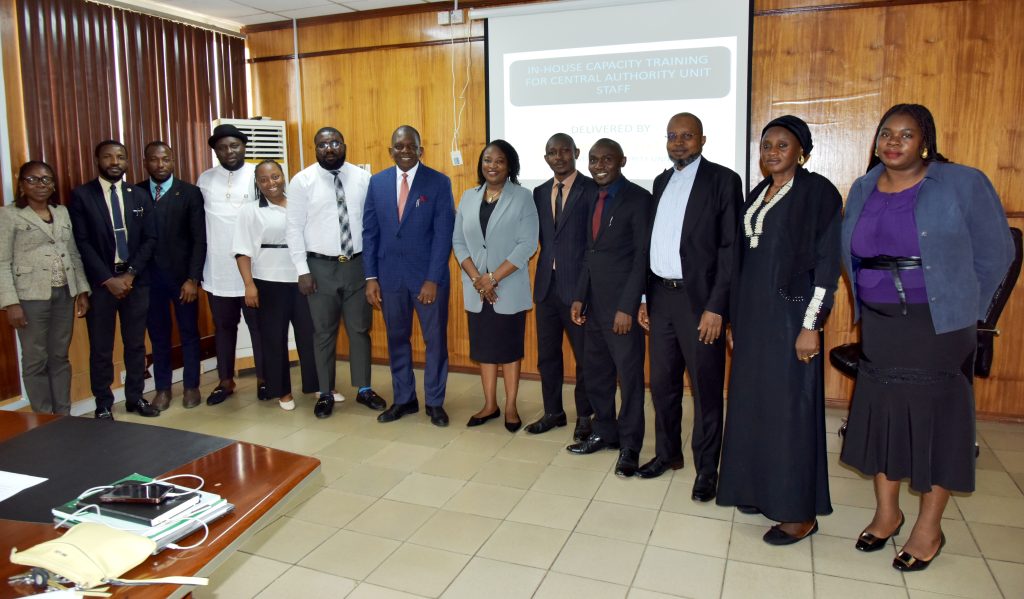The Staff of the Central Authority Unit (CAU) of Federal Ministry of Justice have been called to be proactive in the discharge of their duties. The Assistant Director (AD)/Head Central Authority Unit of the International Co-operation Department, Akutah Pius Ukeyima Esq., disclosed this today during the in-House Training Programme organized for the CAU staff of the ministry in Abuja on Thursday September 29th, 2022.

Ukeyima explained to the 9-participants that memo writing, drafting and writing styles if properly handled makes lawyers’ work to be easy and understandable for the reader.
He said that memo writing is very crucial but if a memo is haphazardly done, it will not give the actual content of what the officer has written. Therefore, any memo that has legal backing should be indicated or not.
He also explained the necessity for an officer to follow the established templates, writing styles as well as proper vetting and editing of their brief for easy communication.
‘According to him, “memo writing entails introduction, brief fact of the case, legal basis (treaties, bilateral agreement, reciprocity), observation, requested assistance, legal opinion, recommendation and draft letter/ application, affidavit, written address’’.
The Assistant Director equally explained that the role of the Central Authority in Mutual Legal Assistance (MLA) Under Section 5(1) MLA Act, 2018 includes the following:
Making or transmitting requests for government to government assistance, executing requests certification of documents, facilitating expeditious execution of requests, negotiating terms/conditions of assistance, performing other functions specified in the act and amongst others.
Ukeyima enumerated the types of assistance to be requested/provided as follows;
Location of persons and objects, search and seizure and freezing of objects, enforcement of foreign judgments and forfeiture orders, taking of evidence or statements from persons, providing copies of relevant documents and records and amongst others.
Speaking on the conditions for mutual Legal Assistance, he noted that the decision to grant MLA depends on the requested State’s legal framework as well as its willingness to cooperate. Apart from the legal bases, the following conditions exists, such as Dual criminality, Severity, and the minimum punishment/ assurances, sufficiency of supporting evidence.
According to him, “the identified weaknesses include lack of comprehensive framework, absence of criminalization of offenses,

restriction on information sharing. The way forward is as follows; promote judicial cooperation, improve national legislation to acceptable international standards, train relevant personnel/build capacity and amongst others’’.


